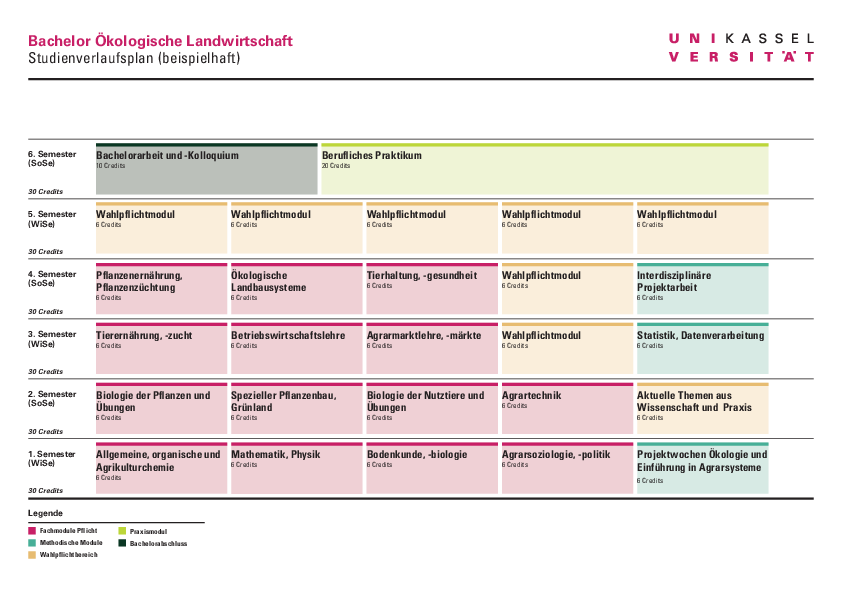How is the study program structured?
The content on this page was translated automatically.
Sample Study Plan
Download
Course of studies
The undergraduate program dovetails the basic scientific subjects of agricultural science with the applied agricultural subjects. This makes the connections clearer. Ecological issues are given more focus than is usually the case in agricultural courses.
The main study phase consists of seven elective modules, which you can select from a module catalog of over 40 modules. This offers you individual scope to either continue your broad education or to set your own focus.
Students should be introduced to research-based learning and learn problem-oriented, interdisciplinary approaches. Furthermore, key qualifications such as communication, taking responsibility, networked thinking and the ability to work in a team are to be trained.
In individual often practice-oriented seminars, special aspects of organic agriculture and related disciplines as well as methods and languages are developed during the course of study, e.g. Soil Science Exercises, Wildlife Education, Poultry Feeding or Technical English.
Students are introduced to their future professional activities through concrete tasks and practical work in companies or other institutions of professional practice.
The Bachelor thesis has a processing time of eight weeks. As a rule, there is a content-related discussion of a topic of choice by means of scientific literature. In the colloquium, the work is presented for 20-25 minutes and questions are asked by the examiners.
It is possible to take the agricultural assistant examination at the same time in the dual study program in agriculture.
